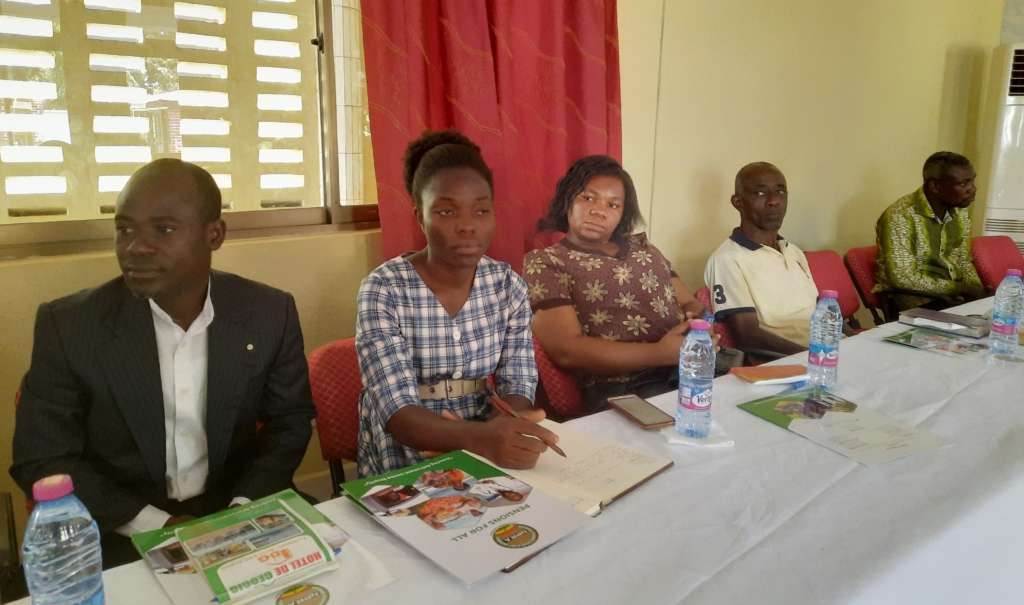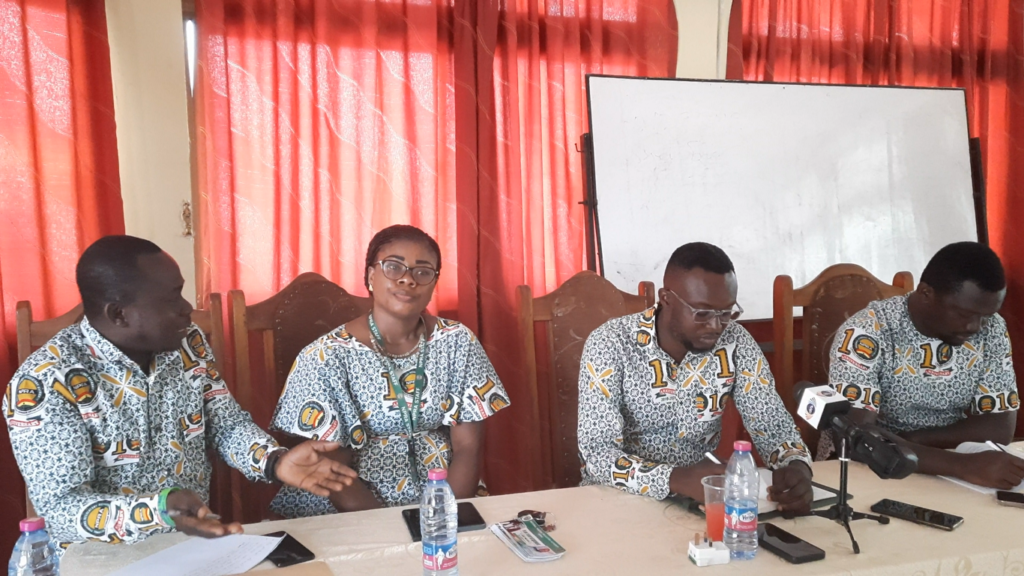The National Pensions Regulatory Authority (NPRA) is urging stakeholders in the industry to enhance collaboration that would inure to the benefit of Ghanaian workers during retirement.
Bono, Bono East, and Ahafo Regions manager of the Authority, William Ohene Adjei, said it is only through effective collaboration that would lead to widening coverage and subsequently rope in more informal workers.
He said as part of the Authority’s 5-year strategic plan, they intend to work towards increasing pension coverage and pension income.

“It is only you (trustees and other stakeholders) and I (NPRA) that can make it possible. The Authority alone cannot do it, but when we all come together as one, through collaborations, we would be able to increase the coverage and growth too”, he said.
Me. Ohene Adjei also indicated that the Authority is set to roll out some activities with stakeholders, including SSNIT and religious groups, geared towards increasing pension coverage, especially in the informal sector.
“We came out with an agenda to “catch them young” to imbibe pension ideas into the senior high students. We have met some schools and students, and have also had our median “youth in pension” awareness program”, he mentioned.

He revealed that the paramount chief of Goaso has agreed to collaborate with them on the awareness creation “to propagate pension education with the hope of getting about 40 percent of informal workers registered in the Ahafo Region”.
In Ghana, about 85 percent of the working population is in the informal sector, with just about 4 percent registered for pension schemes.
But to increase their focus areas, Mr. Ohene Adjei emphasized that successful plans in the Bono Region would be replicated in the Bono East and Ahafo Regions to register more people.
He made the remarks during the Authorities end of year stakeholder engagement at Fiapre, near Sunyani.
Some of the participants came from PenTrust, Peoples Pension Trust, Metropolitan Pension Trust, Databank, and Glico Pensions.

The trustees mentioned situations where some organizations deduct their workers but never pay their employee’s pension contributions to the expected trustee as one of the challenges that require stringent measures from the sector regulator to cure.
They emphasized that the situation is more prevalent in some religious bodies, private educational institutions, and sole proprietorship businesses that are not fully registered.
“They (private employers) are not taking tier two seriously since they know nothing will happen to them if they don’t pay. NPRA should sanction such employers, even if it means taking them to the courts, just like when they default at SSNIT, to serve as a deterrent to others”, a trustee representative said.
The trustees, therefore, urged the regulator to spread their visibility for employers to know and face the consequences if they default in paying for tier two.
In his reaction, the Regional Manager of NPRA, Ohene Adjei assured that the authority with its prosecutorial powers, per the Pensions Act, would act in the ultimate interest of the worker.

“We are sending the list of defaulting organizations to our legal department by the end of October 2022 for prosecution”, he revealed, adding that when that happens, it means they have exhausted all the processes to get them to comply with the payment of their worker’s pension contributions.
He, however, urged the trustees to endeavor to also copy the regional office of the NPRA with the defaulting list of institutions to enable them to take action on time to guarantee an improved living standard on retirement for the Ghanaian worker.
The NPRA was established by the National Pensions Act 2008 (Act 766) to regulate and monitor the operations of the three-tier pension scheme and ensure the effective administration of all pensions in the country.





